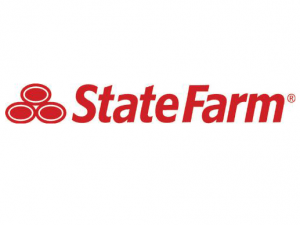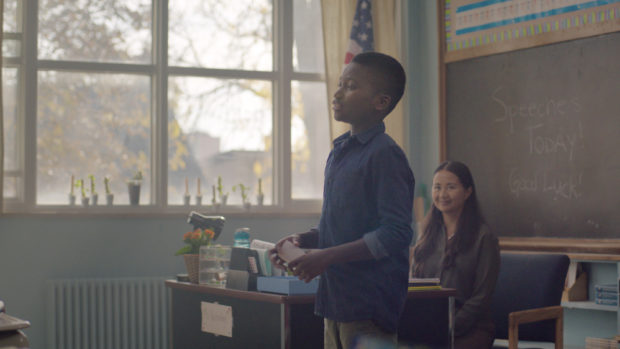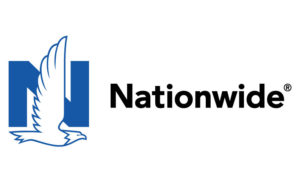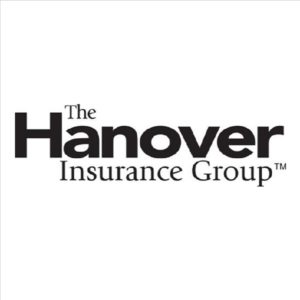“Jake from State Farm” returned to television in February, but with an unexpected twist. The iconic white character is now a younger Black man.
The new campaign starts with the original advertisement, where a middle-aged, mildly overweight white male is in his living room, wearing pajamas in the dark at 3 a.m., answering questions over the telephone.
“Yeah, I’m married,” he says, barely speaking above a whisper. “Does it matter?”
As before, his formerly sleeping wife overhears, walks down the stairs, turns on the living room light and asks who he’s talking to. He tells her: “It’s Jake from State Farm.” She doesn’t buy it, asks angrily who the other person is, grabs the phone and speaks.
“What are you wearing, ‘Jake-from-State Farm?'”
“Uh … khakis,” replies Jake, a fit, 20-something African-American male, instead of the middle-aged Caucasian sales agent from the original.
***
State Farm’s sly update of its “Jake from State Farm” campaign is one of a number of property/casualty insurers’ advertising campaigns that increasingly acknowledge diversity in the world around them—and in the customers they hope to reach. Beyond State Farm’s ad, they include Allstate’s commercials with “24” actor Dennis Haysbert; rapper Snoop Dogg and former NBA great Shaquille O’Neal promoting The General Insurance; and actor Leslie Odom Jr., famous for his role in Broadway’s “Hamilton” musical, performing in Nationwide television ads. Progressive has its Motaur campaign, with a half-man/half-motorcycle character played by a Black actor, while Travelers has hit diversity notes by featuring Black families in more traditional advertising campaigns.
[Related Story: Taking Bigger, Broader Steps Toward Diversity]
These efforts have been ongoing in recent years, though they stand out during a spring and summer where Americans have protested and rioted for equality and against police brutality. Insurers say they are taking these steps, and approaching their internal operations, in ways designed to reach out to a multicultural society. In light of the Black Lives Matter movement pushing for the dismantling of systemic racism, companies will also be asked to demonstrate greater action well beyond advertising campaigns, said one observer who acknowledges progress made so far.
[See the old versus new “Jake From State Farm” ads at this link.]
“Insurers are adjusting their marketing tactics to reflect the nation’s demographic shift. As a result, people of color are increasingly being featured in insurance advertisements,” Derede McAlpin, a crisis management expert and chair of the litigation and diversity & inclusion practice groups at LEVICK, a public relations firm, acknowledged of changes made so far. “At the end of the day, consumers want to see themselves in insurance storylines and ads.”
At the same time, McAlpin added, the Black Lives Matter protests raises the bar moving forward. “With the recent movement calling for social change, the public will soon demand to see more underrepresented groups in leadership ranks and boardrooms as well,” she said.
Allstate declined comment. The General, owned by American Family, could not be reached.
State Farm and Nationwide explained to Carrier Management steps they’ve taken regarding diversity and advertising and how those approaches fit as part of their broader philosophy on the issue.
The Hanover, a smaller, regional carrier based in Massachusetts, relies more on social media rather than traditional advertising, though the insurer said it has made numerous efforts to diversify its employment and recruitment efforts.
State Farm
State Farm Public Affairs Specialist Gina Morss-Fischer said that the company unveiled its updated “Jake from State Farm” ad to give it a new twist but also update its iconic “Like a Good Neighbor State Farm is there” campaigns.
 “The original Jake was actually an employee. He did great delivering his famous line, “uh…khakis.” However, this expanded role is very demanding and is best filled by an actor,” she said. “The Jake character embodies all of us at State Farm. Jake isn’t a call center rep or an agent or a claims rep. He transcends job titles. He represents who we are as a company—a helpful humanization of what a good neighbor should be. He can be any race or gender.”
“The original Jake was actually an employee. He did great delivering his famous line, “uh…khakis.” However, this expanded role is very demanding and is best filled by an actor,” she said. “The Jake character embodies all of us at State Farm. Jake isn’t a call center rep or an agent or a claims rep. He transcends job titles. He represents who we are as a company—a helpful humanization of what a good neighbor should be. He can be any race or gender.”
The actor who has the job now responded to an open casting call. Morss-Fischer said he was the clear favorite and “just happened to be African-American.”
“The original Jake is still with us as an employee at State Farm but has retired his khakis and passed them on to the new Jake,” she noted.
Morss-Fischer added that State Farm also focuses on making the company itself a more diverse place.
“It’s important that we’re providing chances for people to compete for opportunities within the company,” she said, “whether that’s at the entry level, like our recruiting efforts with groups like [historically black colleges and universities], or using this culture to allow people to rise through the ranks into management.”
She said diversity will work its way up State Farm’s executive ranks over time.
“We are a relationship-driven company and therefore we promote from within. So, this may mean it will take some time to see changes at the higher ranks,” Morss-Fischer said. “Still, we believe in recruiting from a diverse pool, providing training and mentoring to our employees, and ensuring opportunities for advancement.”
One example of this: State Farm’s Agency Diversity and Inclusion Network, which Morss-Fischer said gives “opportunities for agents of all backgrounds to build each other up and provide advice, resources and tools to be successful with their independent small businesses.”
Nationwide
Nationwide’s move toward more diversity in advertising has included its 2017 hiring of Leslie Odom Jr., an actor and singer who originated the role of Aaron Burr in the Broadway musical “Hamilton.”
Jennifer MacKenzie, Nationwide’s senior vice president of Enterprise Brand Marketing, explained that his debut was as “a featured music artist” within the insurer’s “Songs For All Your Sides” national advertising campaign.
“Creatively, the goal was to showcase multicultural talent within our national advertising campaign to help represent and celebrate diversity,” MacKenzie said. As she recalled, the commercial was a hit.
“Odom Jr. struck the right tone and fit for our brand and had strong appeal that translated into our advertising performance.,” she said. “The initial “Songs For All Your Sides” creative starring Odom Jr. was very well received—so much so that we did a second production shoot with him and featured him in three commercials altogether.”

Beyond the Odom Jr. adds, Nationwide’s diversity-focused national campaigns have included “Goals,” a spot highlighting Nationwide’s sponsorship of the Walter Payton NFL Man of the Year Award, and “Dome,” a spot featuring guest celebrity Sage Steele.
MacKenzie also noted the insurer’s “Building a Legacy” spot, based on Hispanic small business owners’ insights, and she said it did well in both digital and social media.
Earlier this year, Nationwide also partnered with award-winning Mexican chef Pati Jinich in the launch of a social media homeowners campaign. She said the campaign was well received.
 According to Ramon Jones, Nationwide’s chief marketing officer, these types of campaigns are important in a more diverse world.
According to Ramon Jones, Nationwide’s chief marketing officer, these types of campaigns are important in a more diverse world.
“Today’s consumers want to feel included and supported beyond seeing representation in advertising,” Jones said. He added Nationwide tries to “lead with cultural insights versus just representation or language.” As well, the insurer partners in the community with diverse organizations, doing business with diverse vendors and nurturing a diverse workforce.
Jones said cultivating a culture of diversity and inclusion both in marketing and within an organization is important, especially now.
“We want every associate’s voice to be heard, valued and respected,” Jones said. “Nationwide makes a point to lead through inclusion across our entire organization, not just in marketing. We also strive to be part of the solution by supporting social justice initiatives. We’re very proud of those efforts.”
According to Jones, Nationwide’s efforts have drawn notice, including being named a top company for diversity by Black Enterprise, Latina Style and Fortune. As well, the insurer has received recognition for its efforts to promote equality for women and the LGBTQ community among its employees.
“Embracing diversity and inclusion should be a core value of every company,” Jones said.
The Hanover Insurance Group
As a carrier that focuses entirely on the independent agency channel, The Hanover carries out “virtually no traditional advertising” to its consumer audience, Chief Human Resource Officer Denise Lowsley said. At the same time, the insurer has an active social media strategy by which it communicates a commitment to diversity.
 We are committed to promoting inclusion and diversity in our workplace and fostering a culture based on trust and respect. Lowsley said. “We see great value in building an organization that reflects the diversity of our country and of our broad customer base.”
We are committed to promoting inclusion and diversity in our workplace and fostering a culture based on trust and respect. Lowsley said. “We see great value in building an organization that reflects the diversity of our country and of our broad customer base.”
She added that The Hanover has taken a number of steps to follow through on this idea in recent years, including the founding of a “visibly and invisibly diverse inclusion and diversity council” and an enhanced flexible work arrangement program. As well, The Hanover linked up with the group CEO Action for Diversity and Inclusion and signed its CEO pledge, “committing to advance diversity and inclusion in our own company and in business in general.”
In addition, The Hanover teamed up with MAKERS, a program that accelerates equality in the marketplace. Lowsley said The Hanover has also given development and awareness training on unconscious bias to all of its employees, with a focus on ensuring “foundational context and knowledge, as well as inclusive leadership workshops for all managers.”
The Hanover has also taken steps to diversify its recruiting and hiring practices. Lowsley said that has included diversity certification for its recruiters in order to help them “more proactively identify diverse talent and utilize new external partnerships.” The insurer is also starting to work with its business resource groups to solicit their input for recruiting and hiring, and also use “their insight, networks and affiliations to strengthen our current practices and identify opportunities to engage with more diverse talent.”
Also in the mix: The Hanover is using added market analytics to better learn where it can tap into new talent pools in various geographic locations.
“While we’ve made good progress, we fully recognize we still have a lot of opportunity,” Lowsley said. “As we look ahead, we’re excited about the possibilities, the potential to develop an organization with even broader experiences and perspectives, and the rewards and improved business outcomes we believe are associated with inclusive and diverse organizations.”





















 Teens’ First Year on the Road Most Deadly
Teens’ First Year on the Road Most Deadly  Machine Learning for Mutuals: What’s Working, What’s Not, and What’s Next
Machine Learning for Mutuals: What’s Working, What’s Not, and What’s Next  Telematics and Trust: How Usage-Based Insurance Is Transforming Auto Coverage
Telematics and Trust: How Usage-Based Insurance Is Transforming Auto Coverage  From Skill to System: The Next Chapter in Insurance Claims Negotiation
From Skill to System: The Next Chapter in Insurance Claims Negotiation 








